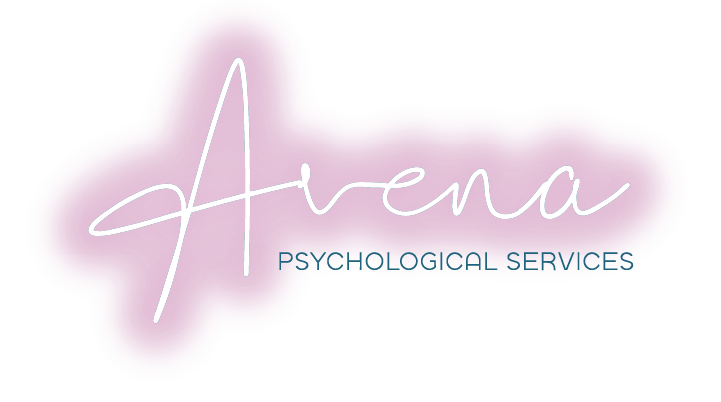Therapy Services in New York & New Jersey
First Responder Therapist
Therapy that helps you create work-life balance
Help for Heroes
Being the first to arrive on the scene of an emergency is the career of choice for firefighters, police officers, and EMS medics. While most people will only find themselves in such emergency situations a few times in their life, it is a daily workday occurence for first responders. These day after day experiences can compound into negative mental health effects, especially without healthy and potent coping mechanisms.
Process work related trauma
Continue to do the job you love with better mental health techniques in your toolkit
Build a safety net of community for hard days
Become A First Responder To Yourself
You are the person that arrives after someone has called for help. Living a life full of helping others can make it a hard habit to break and turn towards helping yourself, but you are a person too. The only one who can request help for you is yourself. First responders are at an increased risk of mental health issues without consistent action towards creating a work-balanced life.
First responders are at an increased risk of:
- Post traumatic stress
- Difficulty sleeping
- Anxiety and depression
- Difficulty taking care of oneself and children
- Substance Abuse
- Suicide
Don’t wait. Schedule Your Consultation Today
What type of therapy is best for first responders?
The best type of therapy for first responders often depends on the individual’s needs and experiences. Some commonly recommended therapies include:
Cognitive Behavioral Therapy (CBT): A practical, structured therapy that helps individuals identify and change negative thought patterns that can contribute to stress, anxiety, or PTSD. CBT is often effective for first responders dealing with trauma or work-related stress.
Trauma-Focused Therapy: Techniques like Eye Movement Desensitization and Reprocessing (EMDR) are specifically designed to help process traumatic memories and alleviate their emotional impact. It’s particularly effective for PTSD.
Mindfulness-Based Stress Reduction (MBSR): Mindfulness techniques can help first responders stay grounded and calm, reducing stress and increasing emotional regulation.
Is there free therapy for first responders?
Yes, some free or low-cost therapy options are available for first responders, including:
Employee Assistance Programs (EAPs): Many fire departments, police forces, and other emergency services offer EAPs, which often include free counseling sessions and mental health support.
Nonprofits and Charities: Organizations like The Code Green Campaign, C.O.P.S. (Concerns of Police Survivors), and Wounded Warrior Project offer free mental health support, including therapy, for first responders.
Veterans Affairs (VA): For first responders who are also veterans, the VA offers free or low-cost mental health services, including therapy for PTSD, anxiety, and depression.
Community-Based Resources: Some local community health centers or mental health organizations offer free therapy services, especially for individuals working in high-risk jobs like first responders.
What mental disorders do first responders have?
First responders are at risk of developing a range of mental health disorders due to the high-stress nature of their jobs, including:
Post-Traumatic Stress Disorder (PTSD): Common among first responders who experience or witness traumatic events regularly. Symptoms can include flashbacks, nightmares, severe anxiety, and emotional numbness.
Depression: First responders are at an increased risk of depression, which may be linked to exposure to traumatic events, stress, or emotional burnout.
Anxiety Disorders: The constant pressure to respond quickly in high-stress situations can lead to anxiety disorders, including generalized anxiety disorder (GAD) and panic attacks.
Substance Use Disorders: Some first responders turn to alcohol or drugs as a way of coping with the trauma and stress of their work, which can lead to substance use disorders.
How common is PTSD in first responders?
PTSD is relatively common among first responders, with studies showing that:
- Between 10% and 20% of first responders experience PTSD at some point in their careers.
- First responders may be at a higher risk for PTSD compared to the general population due to the frequent exposure to traumatic events such as accidents, violence, and death.
- The incidence of PTSD can vary depending on the type of work (e.g., police officers, paramedics, firefighters), with those exposed to more direct trauma (like combat or violence) being at higher risk.
Virtual Mental Health Therapy Tailored For Your Comfort
Contact us to start therapy conducted through technological means for your convenience.
Video Call Therapy
Online therapy conducted via Zoom. Video meetings allow you to see your therapist from the comfort of your preferred location.
Phone Call Therapy
Full service therapy conducted via a phone call. Have full conversation with your therapist without the need to be seen.
Concierge Therapy
Personal appointments can be tailored to special locations through a prior approved agreement with Dr. Avena.
We hope to make your mental health journey as easy as possible by accepting the below insurances.


Getting Ready For Change
After your scheduled consultation has been completed, you will be emailed onboarding documents needed for officially starting therapy. Completing these documents with accurate information is the first step to getting ready for change.
Some people feel more nervous about scheduling a consultation than others. In order to feel more confident, there are things you can do to get your mind psychologically prepped for your consultation. Whether or not you come to the consultation with prepped notes, your therapist will ask you questions to ascertain your goals for therapy. If you would like a tool to bring for more consultation confidence, consider bringing notes on the bullet points below.
In order to prepare for this consultation, here are a few things you can do (this is optional):
- Ask yourself why you are seeking therapy. Write some bullet points down, about 2 to 4, to be briefly discussed during your consultation.
- Name about 2 to 4 feelings you are struggling with.
- Write 2 to 4 things you are wanting to accomplish from therapy.
